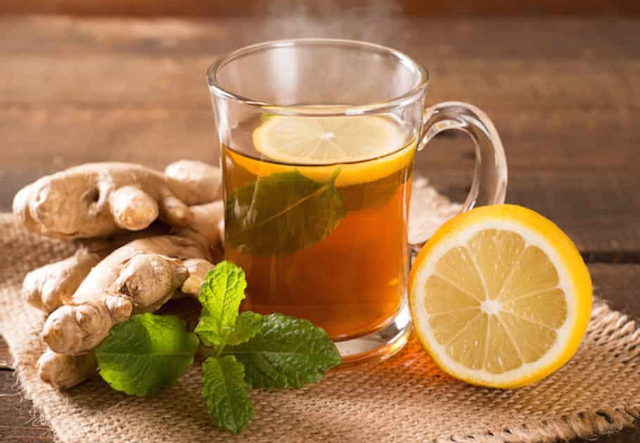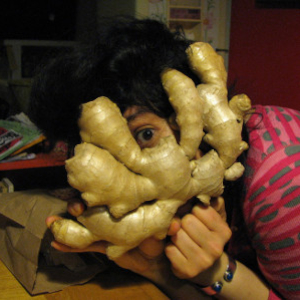There’s been a fair amount of debate in online forums and clinical circles about the value of Ginger as a medicinal root. And that’s generated a lot of comment, not all of it accurate – or even true at all…
 Ginger Tea makes friends…
Ginger Tea makes friends…
The State of the Root
Ginger root has been harvested and employed in folk medicine for millennia. It’s always been viewed as an important therapeutic agent in Asian herbal practice.
When the west discovered Asia, and started bringing back new ‘wonders’ of all sorts, ginger quickly took off in popularity.
More recently, it’s become a favourite of the holistic, naturopathic and ‘health food’ adherents. there are literally thousands of different ginger supplements available online – in dried, powder, pill, capsule and other formats.
But the preferred form of ginger to start with in any application is fresh. Dried forms may have lost a certain amount of their potency in the drying process. And the ‘gingerol’ extract in capsules and gel caps may not contain the full slate of beneficial compounds fresh ginger has to offer.
‘Spice of 1,000 faces’
it would be more accurate to bill ginger as the ‘spice of 1,000 hands’. Folks have long seen the resemblance of a whole ginger root to a human hand. We even call it a ‘hand’. In the same sense that a ‘hand’ of bananas is a subset of a ‘stem’.
Ginger is, first and foremost, a flavouring for both sweet and savoury dishes. Its unique taste is a great match for many foods, and it dovetails beautifully with other herbs and spices. Especially in Asian dishes, where it’s been a staple for thousands of years.
One of the most popular preparations for ginger in western culture is as tea. Ginger Tea has, for several generations, been hailed as a treatment – if not a cure – for the common cold, head aches and body aches, along with a host of digestive ailments, not the least of which is morning sickness.
But recent research – based on the Nutrition Facts rundown of Ginger – has revealed additional medicinal possibilities.
Ginger Facts
Ginger is low in carbs, sugars, fats and sodium. But it’s high in potassium, vitamins C and B6, along with essential minerals including iron and magnesium. It’s considered likely that ginger’s vitamin C content is responsible for its reputation as a cold and flu bug fighter.
Recent discoveries
John’s Hopkins University confirms that ginger is now considered useful in a variety of contemporary contexts:
- Nausea relief. Encouraging stomach emptying can relieve the discomforts of nausea due to:
- Chemotherapy. Experts who work with patients receiving chemo for cancer, say ginger may take the edge off post-treatment nausea, without some of the side effects of anti-nausea medications.
- Pregnancy. For generations, women have praised the power of ginger to ease ‘morning sickness’ and other queasiness associated with pregnancy. Even the American Academy of Obstetrics and Gynecology mentions ginger as an acceptable nonpharmaceutical remedy for nausea and vomiting.
- Bloating and gas. Eating ginger can cut down on fermentation, constipation and other causes of bloating and intestinal gas.
- Wear and tear on cells. Ginger contains antioxidants. These molecules help manage free radicals, which are compounds that can damage cells when their numbers grow too high.
- Is ginger anti-inflammatory? It is possible. Ginger contains over 400 natural compounds, and some of these are anti-inflammatory. More studies will help us determine if eating ginger has any impact on conditions such as rheumatoid arthritis or respiratory inflammation.
Drawbacks?
There are a few… You can take too much ginger. And instead of soothing an upset stomach, it may cause upset due to its spicy nature.
UCLA Medical opines that it’s safe to take some ginger every day, as a preventative. But it’s best to limit your daily intake to 3 to 4 g.
My take
Ginger has proven itself indispensable in modern culinary and medicinal circles. And its social and cultural benefits are well known. In fact, I was given a cookbook once, called Ginger Tea Makes Friends. And the title alone says volumes!
~ Maggie J.

